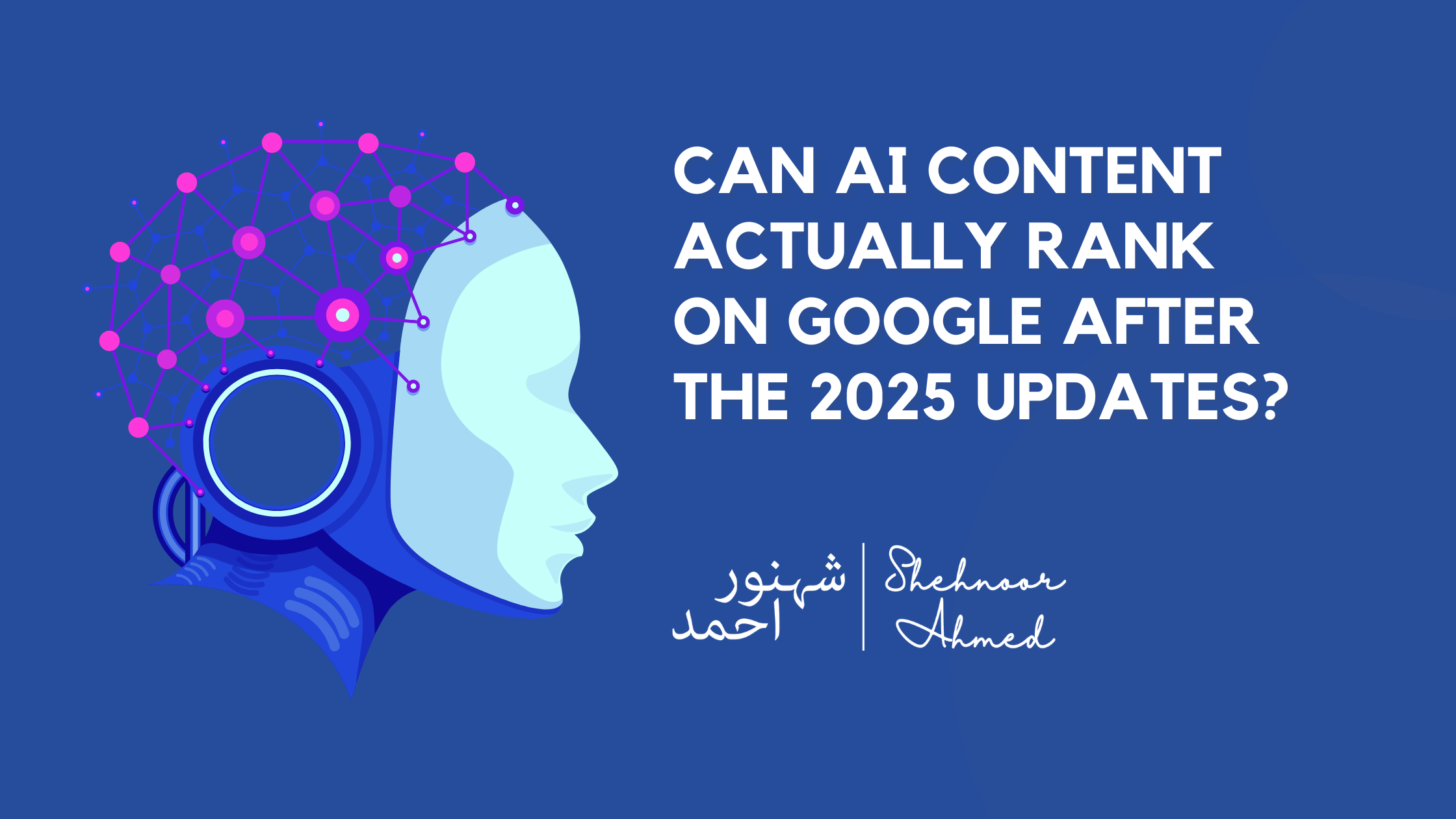
Can AI Content Rank on Google After the 2025 Updates?
It’s the question every content creator, blogger, and strategist is asking, and understandably so. Here’s the short answer of the question, Can AI Content Rank?: Yes, content that’s generated or assisted by AI can rank, but only if it reads and feels like it was written for humans, by humans. Google isn’t interested in who (or what) wrote the content. What it cares about is how useful it is to the person searching. Why Google’s 2025 Updates Shifted the Landscape Google’s most recent core updates in March and May 2025 placed even more weight on experience, originality, and purpose. The Helpful Content System now evaluates whether a piece meets a user’s intent, not just whether it contains the right keywords. That means articles full of fluff, repetition, or obvious automation will get pushed down. Not because they’re “AI-written,” but because they’re not helpful. Also read: Is It Safe to Use AI Tools for Marketing Content? What Actually Ranks Now? Here’s what we’re seeing firsthand at Shehnoor Ahmed, where we help creators and marketers stay ahead of digital trends: Likely to Rank Unlikely to Rank Articles with unique insight or POV Content that sounds templated or vague Experience-based tutorials or reviews Surface-level summaries of public info Strong internal linking & topical depth Isolated, keyword-stuffed articles Clean, semantic structure (H1/H2s, etc.) Over-formatted or robotic headings So… Can AI Content Still Be Used? Of course, but here’s the trick: it’s not about using AI, it’s about how you use it. Think of content tools as assistants, not authors. They can help organize ideas, suggest outlines, or even write drafts, but without your voice, experience, and editing, they won’t stand a chance in 2025’s Google landscape. Real Example: One of our SEO blog clients rewrote a bland AI-drafted article with real project anecdotes and metrics. Bounce rate dropped by 30% within two weeks, and time on page nearly doubled. Before You Publish, Ask Yourself: If the answer is “no” to any of those, it’s not ready, AI or not. Trending Misconceptions in 2025 Things to Know Before Using AI-Assisted Content Tools Factor What to Watch For Hosting & CDN setup Ensure your CMS handles lazy loading, structured data, and caching well Authorship Always add a human author name and bio with credentials Internal linking Don’t rely on AI to auto-generate links. Be strategic. File sizes / UX Watch for bloated HTML, excessive inline styles, or accessibility issues Bonus Tips Sample Tool Comparison for Affiliate Marketers Tool Good For Weakness Surfer SEO On-page guidance Can lead to formulaic tone NeuronWriter Semantic research & NLP Learning curve KoalaWriter Quick post drafts Limited on tone control Use tools to support, not replace, your thinking. Final Thoughts Tools can’t replace your mind or your message. Whether you’re an affiliate marketer, SEO blogger, or strategist, your edge in 2025 comes from showing you know what you’re talking about. Want help crafting content that ranks and converts?At Shehnoor Ahmed, we blend deep SEO knowledge with editorial insight to help creators shine. FAQs Q1: Should I stop using AI content tools altogether?No, but everything that goes live should go through a human’s hand, eye, and judgment. Q2: What’s Google looking for now?Clear, original, helpful content that satisfies a searcher’s real need, not a rephrased version of other blogs. Q3: What about affiliate content?Still ranks — if you offer something unique: a better comparison, first-hand review, or clear product differentiation. Q4: How can I make my blog stand out?Use personal examples, real metrics, and speak like a human being. That’s rare now — and powerful. Q5: Any quick wins?Yes: Improve your internal linking, update old posts with new data, and tighten intros to hook readers early.



